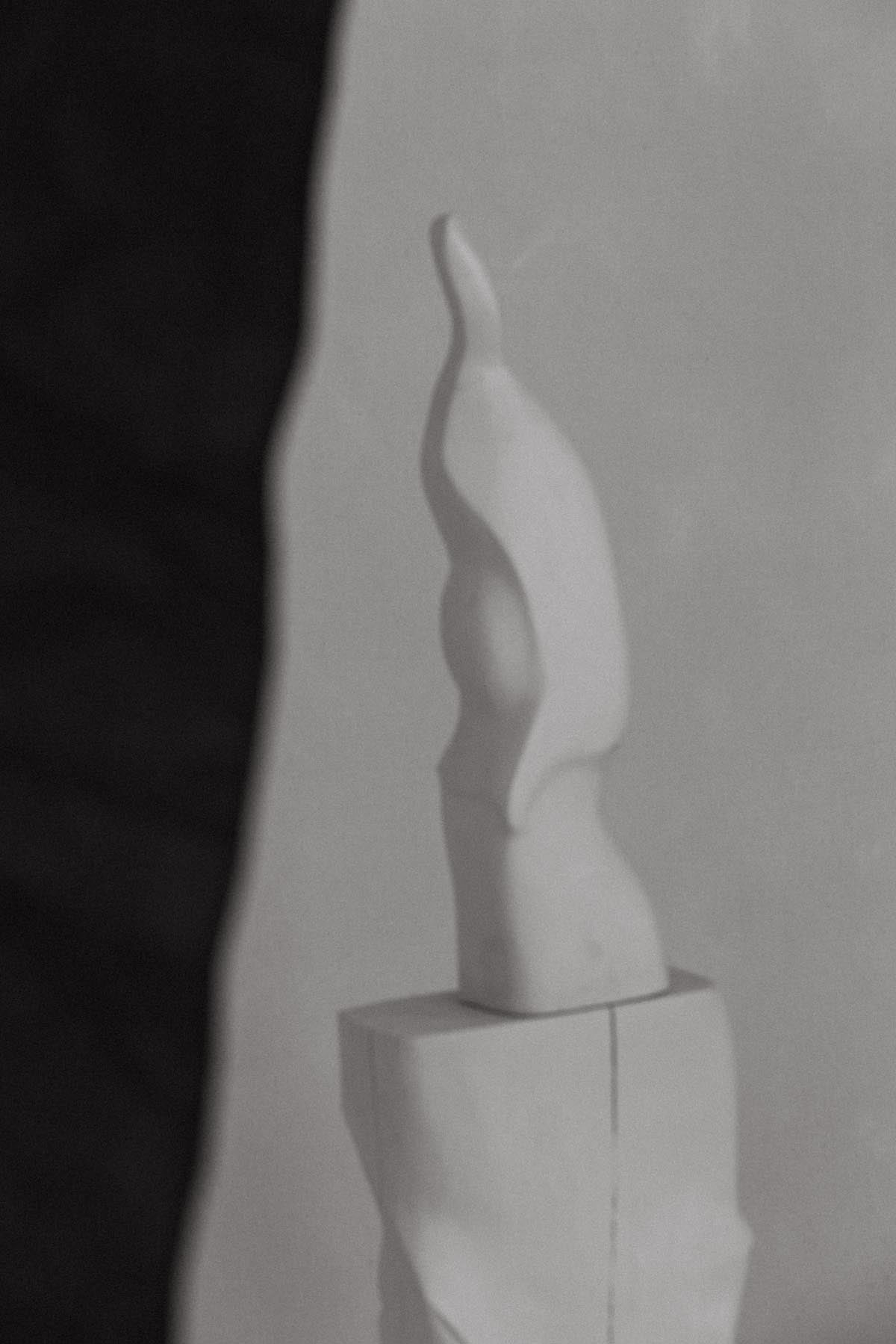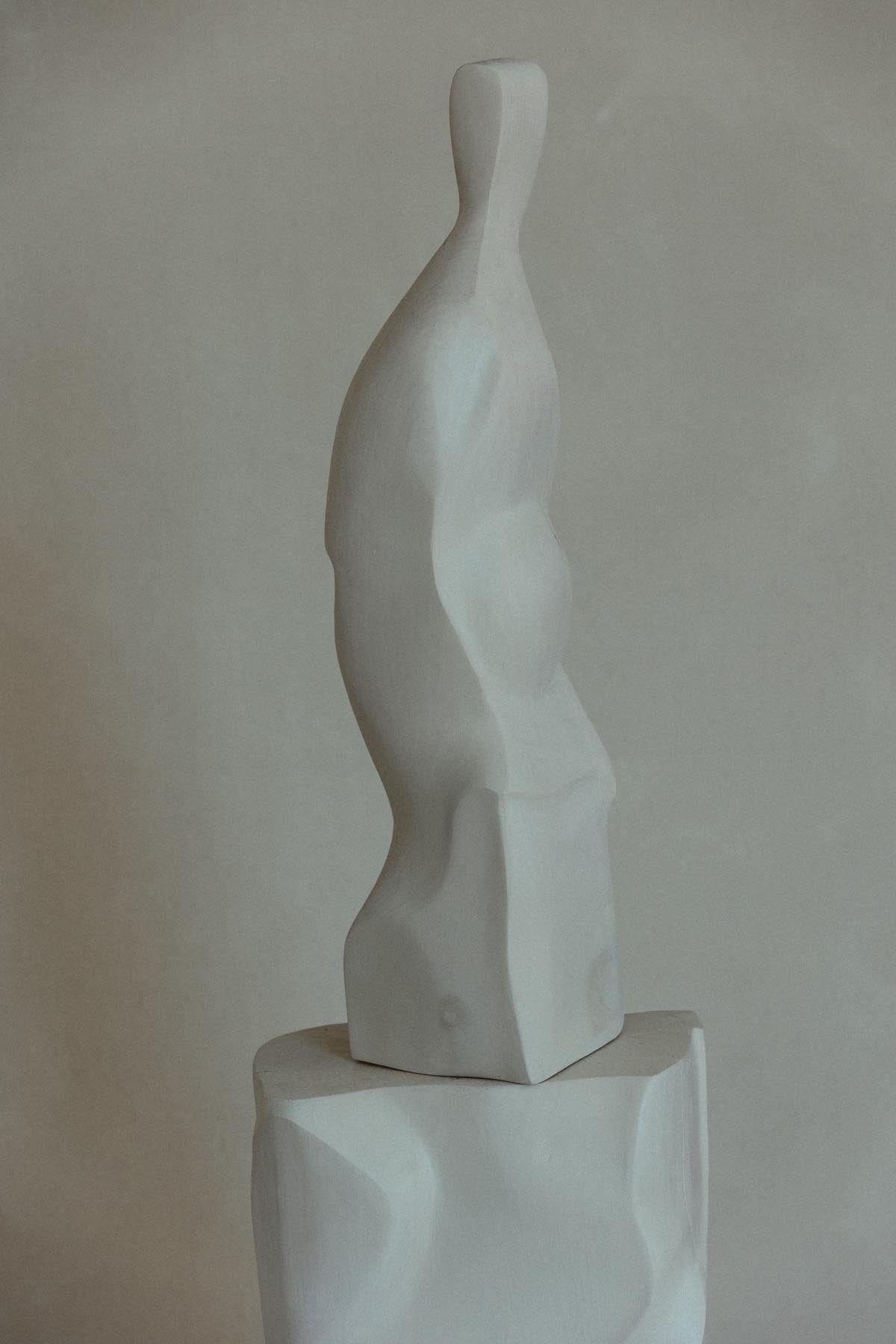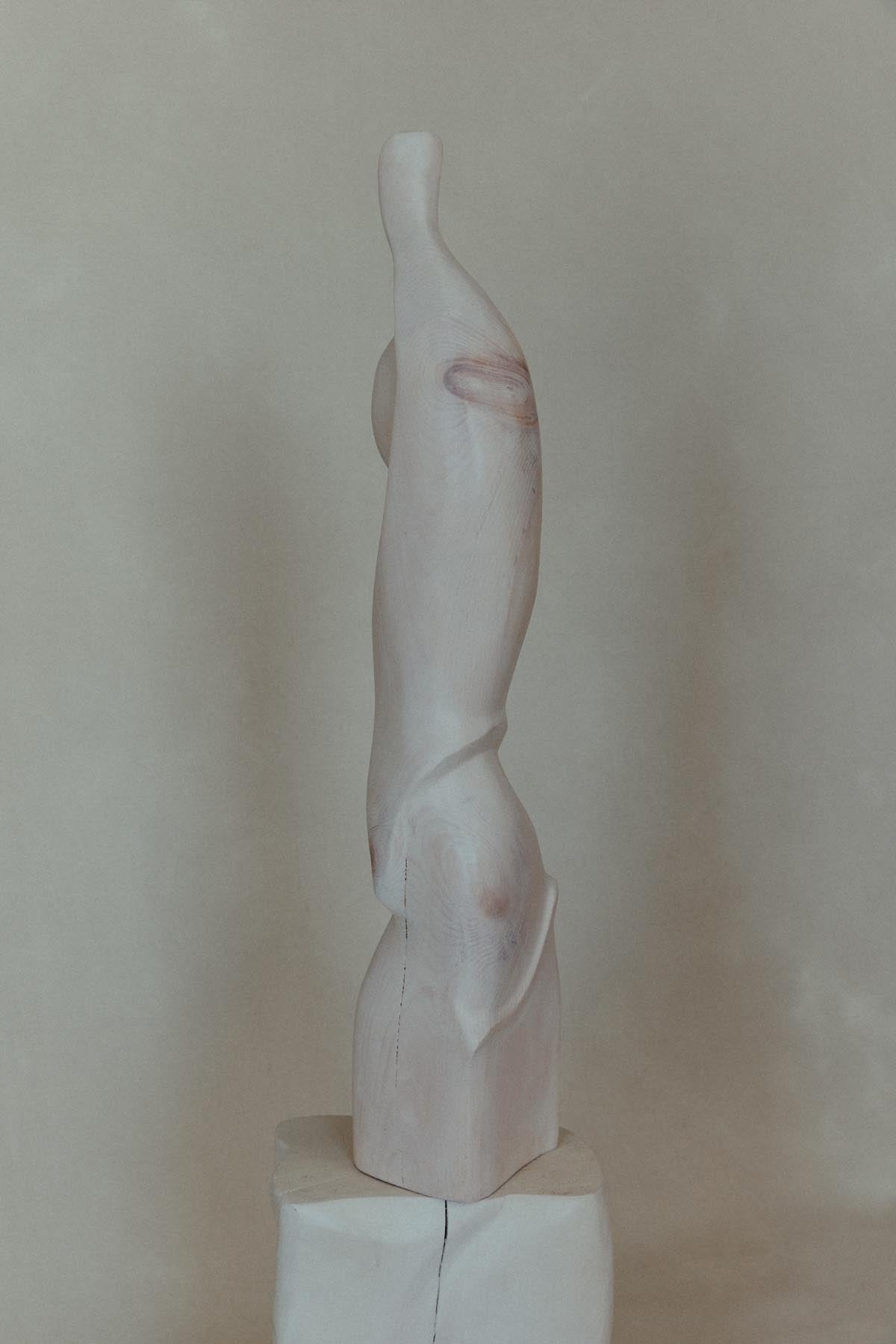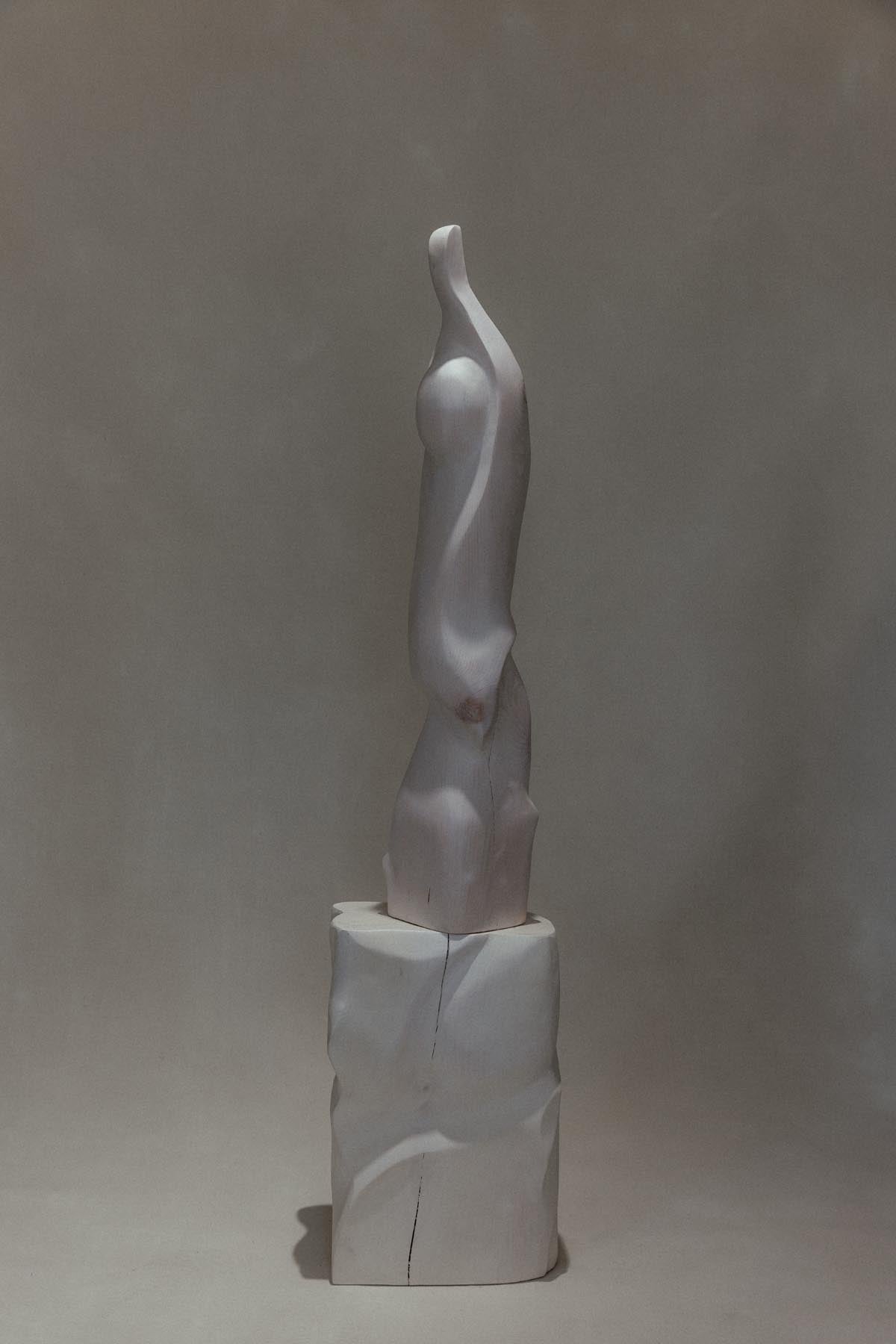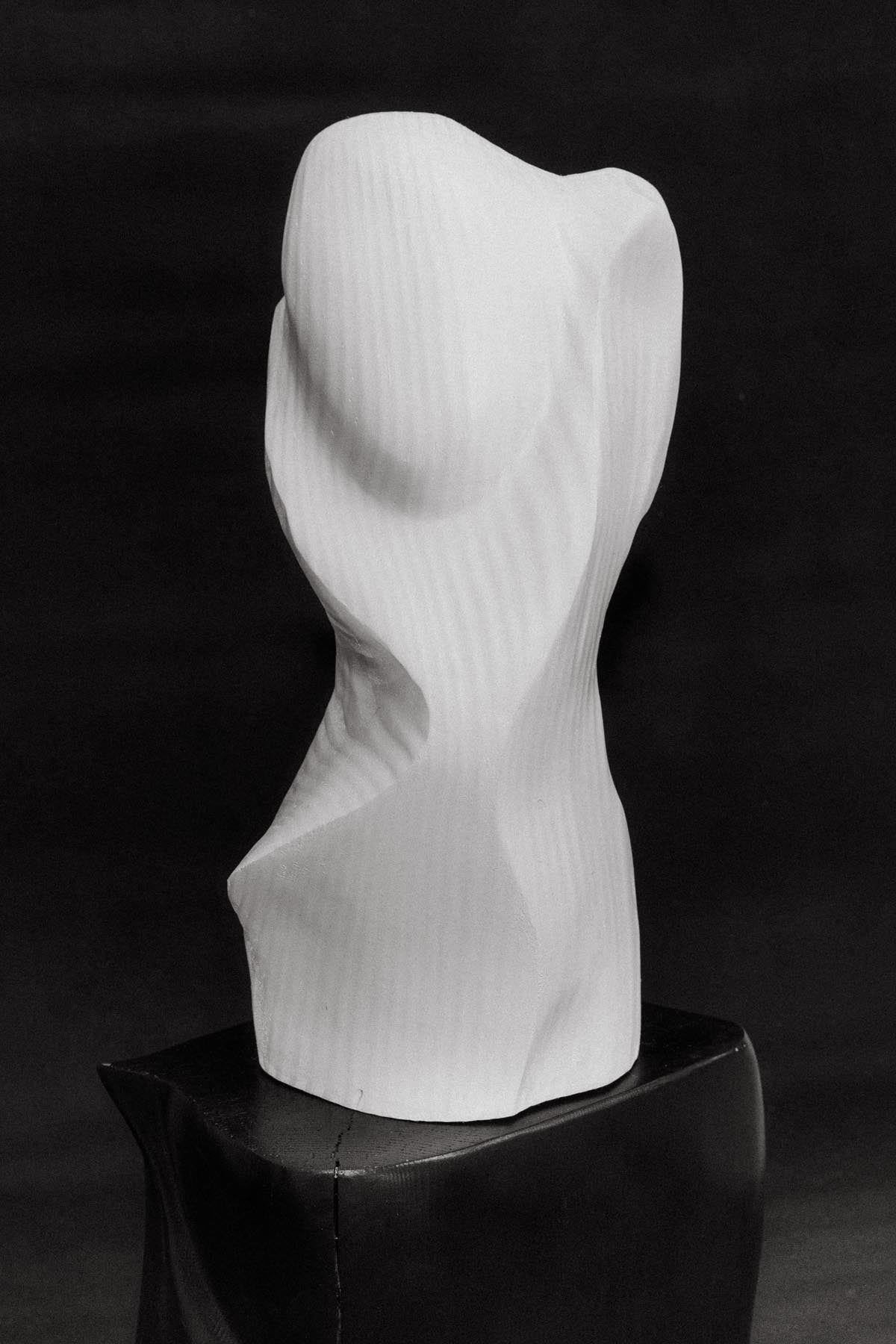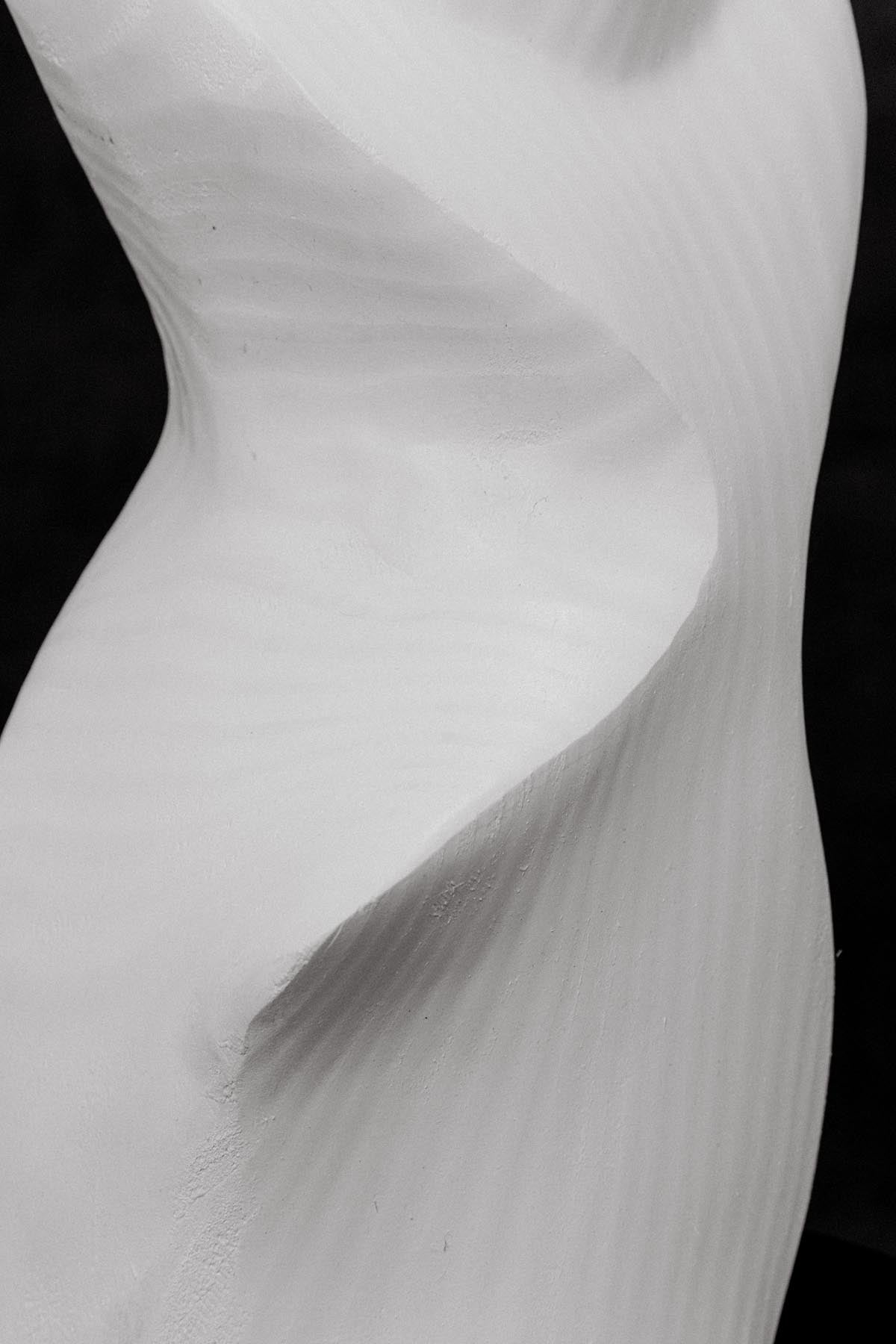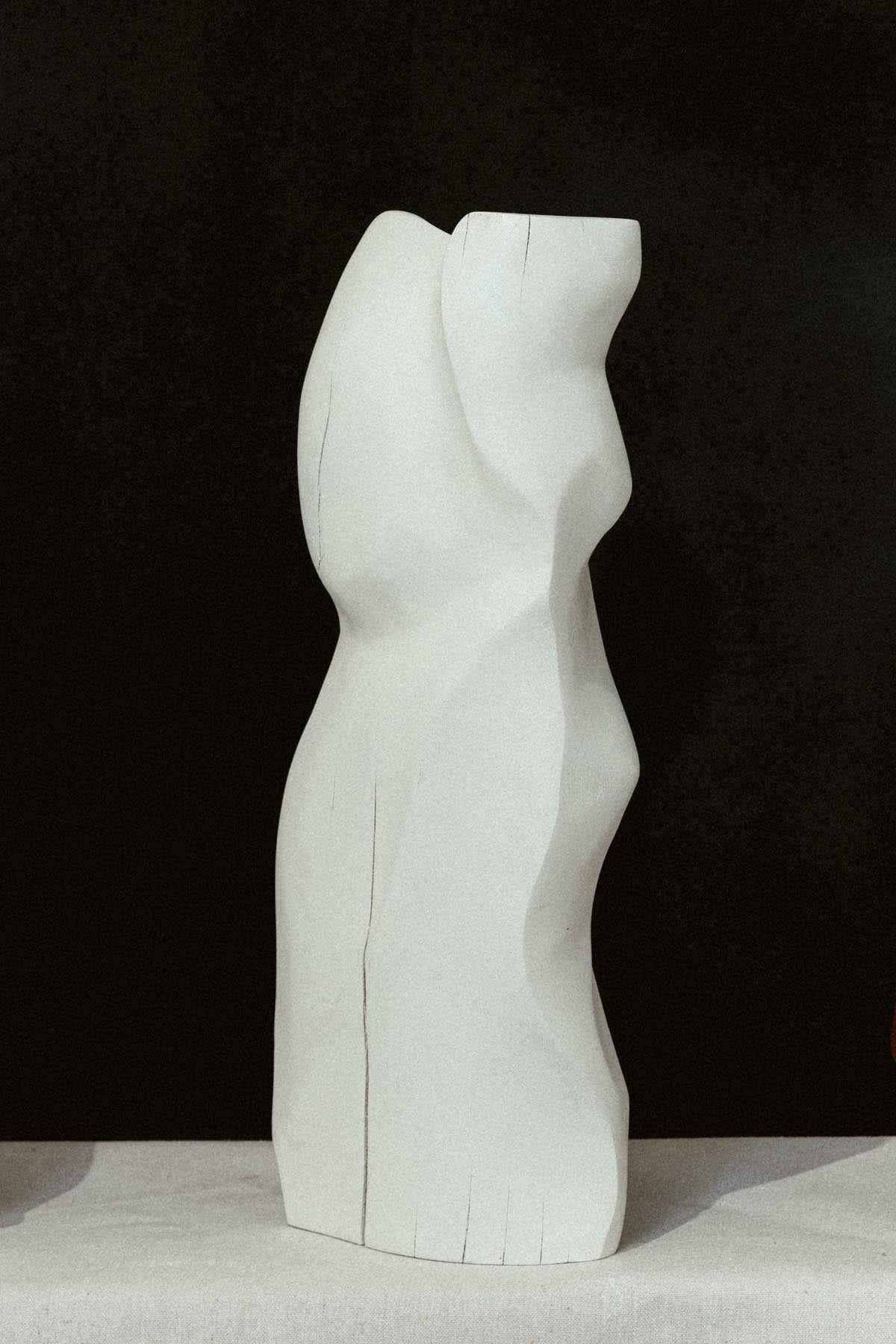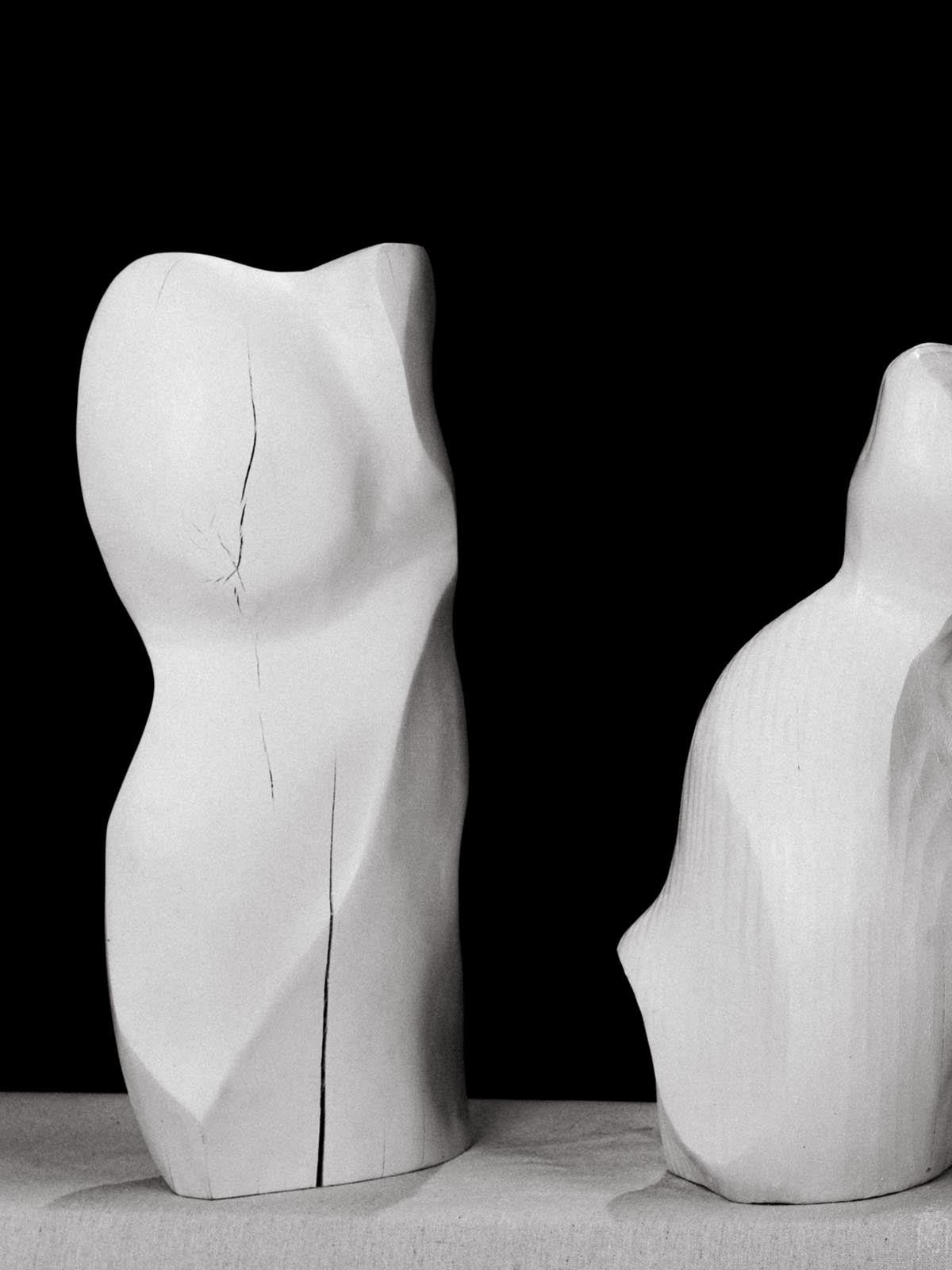Pooja Pawaskar: Master of Contemporary Ceramics
The Quiet Power of Contemporary Ceramics
There is a moment, when you first encounter a piece by Pooja Pawaskar, where time seems to contract. The hustle of the everyday recedes. Your hands want to reach, your eyes recalibrate, and your breath softens to match the cadence of a form that feels both ancient and decidedly new. This is the quiet power of contemporary ceramics—art that invites closeness, that rewards attention, and that offers a grounded counterpoint to a world spinning ever faster.
At Trove Gallery, we champion artists whose work is rooted in technique and charged with spirit. Pooja Pawaskar, a master of contemporary ceramics, makes sculptural works that feel as if they have always existed, and yet they are unmistakably of this moment. Her ceramic sculpture occupies a rare space where minimalism meets warmth: the lines are spare, the surfaces nuanced, and the forms suggest bodies, landscapes, and architecture without ever lapsing into literalism.
Collectors come to contemporary ceramic sculpture for many reasons—the desire to live with handmade objects, the magnetism of texture, the invitation to slow down. In Pooja’s work, all of these threads converge. The result is a collection that is refined without pretension, sensitive without fragility, and deeply attuned to the human impulse to touch. If you are seeking to buy Pooja Pawaskar pieces that resonate beyond a season, her sculptures are an investment in lasting beauty and the tactile intelligence of clay.
Meet the Artist: Pooja Pawaskar
Every artist builds a world. Pooja Pawaskar’s world is one of sensitivity to material, respect for process, and a persistent curiosity about form. She belongs to a lineage of studio ceramics where the hand is not disguised, but celebrated—where evidence of making is not an imperfection but a signature. As a contemporary artist working in clay, her practice balances intuition and rigor, drawing on a vocabulary of curves, apertures, and subtle planes that catch light in gentle, surprising ways.
What distinguishes Pooja Pawaskar ceramics is their quiet complexity. A piece might initially read as simple—an arc, a fold, a standing form—until you notice how its silhouette shifts with each step around it. The profiles speak to one another; negative space is composed as deliberately as mass. The surfaces, often hand-textured and softly finished, invite touch and create a choreography of shadow. This is sculptural work with a painter’s attention to tone and a designer’s understanding of space.
As a maker, Pooja’s perspective is deeply humanist. Her sculptures honor imperfection as a living quality. They are neither cold nor fussy. Instead, they hold a presence that complements rather than competes—anchoring a room, marking a threshold, or providing a focal point on a console or plinth. To explore the full Pooja Pawaskar collection and discover the breadth of her vision, visit the Pooja Pawaskar collection at Trove Gallery.
From Clay to Sculpture: A Process of Intuition
Clay is the most elemental medium. It remembers the pressure of a fingertip, the arc of a palm, the deliberate compression of a rib tool. Pooja Pawaskar’s process honors this responsiveness. Rather than forcing the clay into predetermined shapes, she works with it, allowing the material to suggest what it might become. The result is sculpture that feels organic, not improvised; considered, not over-determined.
The journey begins with the ritual of preparation—kneading and aligning the clay, establishing a rhythm that continues through the build. Pooja often constructs her forms through hand-building techniques, building volume with coils and slabs, then carving and refining as the clay reaches the right stage of firmness. Openings are cut not as afterthoughts but as central elements of composition. Negative space becomes a line, a window, a breath. Each edge is tuned to catch light; each plane is softened just enough to carry the warmth of the hand.
Drying is intentional and unhurried, allowing the forms to settle into themselves. In firing, the once-porous body transforms—structure is set, color deepens, and the surface achieves its final resonance. The finishes are subtle and tactile, favoring soft matte tones that amplify shadow and silhouette. While every work is singular, you can sense the continuum: a cohesive language uniting the Pooja Pawaskar pottery and sculpture you see across her practice.
This sensitivity to process yields objects that are both visually striking and deeply livable. They hold their own in a minimal interior, but they are equally compelling in layered environments where texture and story matter. In an age of speed and replication, Pooja’s studio practice returns us to the original meaning of craft: time, attention, and the skilled transformation of raw material into form.
Spotlight on the Collection: Four Signature Works
At Trove Gallery, we are honored to present four significant works by the artist—each one a testament to the enduring appeal of contemporary ceramic sculpture and to the singular voice of Pooja Pawaskar. Whether you are a seasoned collector or seeking your first sculptural piece, these works demonstrate the breadth of the artist’s vision and the depth of her craft.
Petula Sculpture — $2,988.00
The Petula Sculpture is a study in poise. Its silhouette balances a grounded base with an ascending curve that reads differently from every angle. There is a lyrical asymmetry to Petula—a gentle lean, a suggestion of movement held just at the edge of stillness. This is a piece that rewards slow looking: drift around it and notice how the negative space draws a soft line through the form, how a shadow pools along one side, how the hand-finished surface subtly shifts with the light.
Petula’s presence is meditative without being quiet to the point of disappearance. On a console or pedestal, it sets the tone for a room—serene, attentive, and refined. For those looking to buy Pooja Pawaskar pieces that bridge art and design, Petula is a consummate example: a sculptural statement with the tenderness of a handmade object. As an individually made studio work, it carries the small variations that make one-of-a-kind ceramics so compelling.
Parker Sculpture — $3,468.00
Where Petula leans toward lyricism, the Parker Sculpture asserts a more architectural rhythm. At $3,468.00, it is a commanding piece, defined by strong verticality and an interplay of inner and outer volumes. Parker’s form feels totemic—stacked, cohesive, grounded. Its openings create portals that frame the world around it, making it as dynamic as the environment in which it lives.
Parker is particularly powerful in spaces that welcome bold gestures: an entry hall where light falls in a steady wash, a gallery wall where clean lines meet texture, or a dining room where it becomes an anchor for conversation. Despite its presence, the surface remains human, the finish a soft matte that invites proximity. This is a work that articulates the core of Pooja Pawaskar ceramics—spare but not sterile, dignified but warm.
Delphi Sculpture — $2,988.00
The Delphi Sculpture is about resonance—the echo of shape within shape, the feeling that a line continues beyond its edges. Delphi’s contours are gently faceted, creating a play of light and shadow that changes as you move. There is a contemplative quality here, a sense that the form was discovered rather than imposed.
Delphi thrives in spaces designed for reflection: a reading nook, a home office, or a bedroom where it can be seen in morning and evening light. Its $2,988.00 price reflects both its scale and its complexity—this is a sculpture that shows remarkable restraint while carrying a rich internal life. For collectors looking to buy Pooja Pawaskar sculpture with a quiet, enduring strength, Delphi is a luminous choice.
Elewon Scupture — $2,988.00
The Elewon Scupture brings a note of graceful tension—an equilibrium of curve and counter-curve that reads as both elegant and grounded. Its aperture pulls the eye through, creating a dialogue between interior and exterior space. Look closely and you’ll find those signatures of the artist’s hand: a softened edge, a measured ridge, a surface that feels as good as it looks.
At $2,988.00, Elewon is a versatile work that can anchor a mantle, punctuate a bookshelf, or hold court on a dedicated plinth. It pairs beautifully with pieces like Petula or Delphi, creating an ensemble with subtle variation—each form echoing the other, each maintaining its own voice. This is the essence of building a personal collection: letting objects converse across a room, across time.
Each sculpture is offered as part of the curated Pooja Pawaskar collection at Trove Gallery. As studio-crafted works, they carry the hallmarks collectors prize: thoughtful design, tactile surfaces, and the authenticity of handbuilt ceramic art. If you are seeking Pooja Pawaskar pottery that transcends function to become living sculpture, these works are exemplary.
How to Live with Ceramic Sculpture
Collecting sculpture is about creating relationships—between forms, between materials, between light and space. When living with contemporary ceramic sculpture, a few considerations can help your pieces sing.
First, think in terms of sightlines. Where will you encounter the work, and from how many angles? A piece like the Parker Sculpture thrives in circulation spaces where you can experience its structure as you move. Petula and Elewon invite close looking; place them within arm’s reach on a console or pedestal so their surfaces and apertures can be appreciated up close.
Second, honor the play of light. Pooja’s surfaces are tuned to shadow and reflection. Natural light will wash across matte finishes differently throughout the day, revealing nuances you might miss at night. Consider a location with soft daylight or a directional lamp that grazes the surface to emphasize texture and contour.
Third, consider scale and breathing room. A sculpture’s negative space is as important as its mass. Allow space around openings and edges; avoid crowding with small accessories that dilute the composition. Instead, pair ceramic sculpture with materials that complement its tactility—linen, raw wood, stone, patinated metal. These dialogues amplify the material presence of clay.
Care is straightforward and respectful. Dust gently with a soft, dry microfiber cloth. Avoid harsh cleaners or water saturation. Place felt pads under bases to protect surfaces and to allow minute adjustments without scratching. While ceramic sculpture is durable, treat it as you would any fine artwork: avoid direct heat sources, protect from sharp knocks, and position thoughtfully to prevent tipping in high-traffic areas or in homes with energetic pets.
Finally, build a collection that reflects your pace of living. Contemporary ceramics, especially the work of an artist like Pooja Pawaskar, bring a restorative cadence to interiors. Whether you’re assembling a focused series from a single artist or mixing mediums—textiles, paintings, wood and metal sculpture—let each piece hold a clear role in the room. Over time, you’ll find that the sculptures become companions: touchstones that steady the day and mark the seasons.
Collecting Pooja Pawaskar at Trove Gallery
At Trove Gallery, we believe that handmade objects carry stories that change how we inhabit our homes. The story of Pooja Pawaskar is one of refined curiosity: a practice attuned to proportion, to touch, and to the architectural possibilities of clay. Her work has become a favorite among collectors who value craftsmanship, authenticity, and a contemporary aesthetic rooted in material intelligence.
When you choose a piece from the Pooja Pawaskar collection, you’re acquiring more than an object. You’re bringing into your space a meditation on form, a record of the artist’s hand, and a piece of contemporary ceramic sculpture that will continue to reveal itself over years of living. Whether your eye is caught by the lyrical balance of the Petula Sculpture, the architectural confidence of the Parker Sculpture, the contemplative refinement of the Delphi Sculpture, or the graceful tension of the Elewon Scupture, each work offers an intimate, enduring experience of art in the everyday.
If you are ready to buy Pooja Pawaskar work that aligns with your sensibility, our team is here to help with placement ideas, shipping guidance, and any additional details you may need. Explore the collection, imagine the possibilities, and let your home become the setting for art that speaks quietly yet powerfully.
Call to Action: Begin or deepen your collection today. Shop the full Pooja Pawaskar artist collection, or inquire directly from each product page—Petula, Parker, Delphi, and Elewon—to discover the sculpture that will transform your space.
